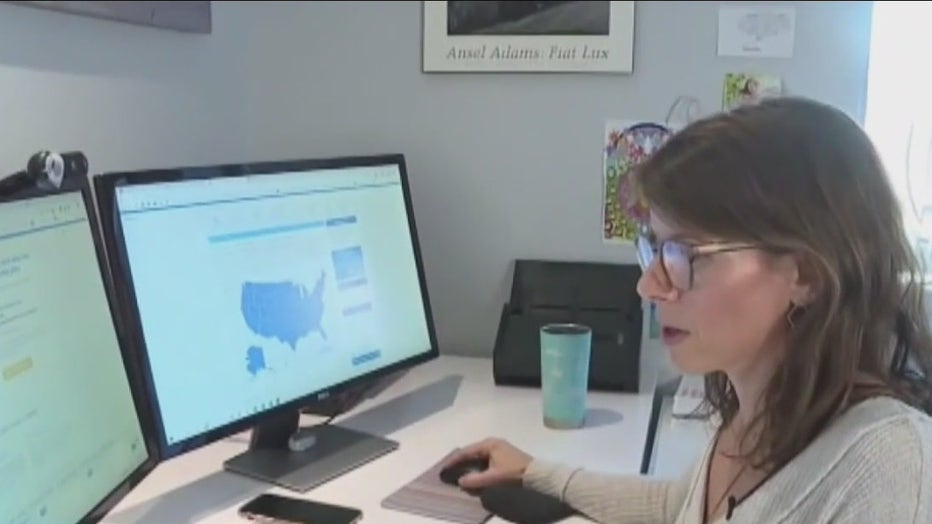Some companies expand work from home options to slow pay raise pressures, research suggests

Companies expand work from home to slow pay raise pressure
A new study found at least a third of companies expanded work from home options as a substitute for pay raises over the last year as other companies worked to get their employees back in the office permanently.
TAMPA, Fla. - A new study found at least a third of companies expanded work from home options as a substitute for pay raises over the last year as other companies worked to get their employees back in the office permanently.
Business experts with the University of South Florida said the value of remote work comes down to what both the worker and employer find important.
For Sanjay Mahendrasah, he has worked from home full-time since 2020. He said he finished his MBA program in August 2020 and his best offers were fully remote jobs.
"I have flex start time, so I can start at 7 a.m. or I can start at 9 a.m. Depending on when I start, determines when I finish," said Sanjay Mahendrasah, a remote worker in Tampa. "That was great because it allows me to go to the gym in the morning, and I’ll be done at 5 o’clock and have no other obligations for the day."
So for two years, he’s enjoyed flexibility and benefits from his home office in Tampa.
MORE: FBI: Scammers using deep fake technology to apply for remote work
"I think it’s here to stay and companies should probably get used to it because people like it. People really enjoy it especially with not having to spend with gas prices rising and inflation through the roof, expenses are up," he said.
Those expenses and inflation pressures are hitting workers and employers who went into the office before the pandemic and have now returned to the office. A new study from the National Bureau of Economic Research found 38 percent of companies expanded work from home opportunities over the last year to substitute for pay raises and keep workers happy.
"It’s an interesting idea, and I don’t think I’ve ever heard of that. I know that some companies want to go remote, so they don’t have to pay for the utilities and the rent associated with it," said Mahendrasah. "I don’t know how I feel about that because if they’re saving money on the space then they can probably afford to pay more money to the employees. So I don’t know if I necessarily agree with that, but to each company their own."

The study implies companies may use remote work to handle inflation. University of South Florida business professor Russell Clayton said the impact is likely more mixed.
"Does it work in the larger scheme of inflation in the country? I can’t really speak to that exactly. Is it going to work for the worker? I’m a bit skeptical honestly," said Clayton. "There are certainly workers that would trade off that [pay], but the inflation is hitting us, many workers really hard. I believe there are a lot of workers who are going to want to forego work from home and get every penny that they can because of inflation."
Other research from McKinsey’s American Opportunity Survey of 25,000 Americans has found more than half of them work remotely at least one day a week. But Clayton noted of the study that lower income workers don’t perceive as much value from remote work as higher income workers. He said overall it comes down to each company finding what works for them and what motivates their workers.
"The name of the game right now for employers is to try to retain the resources that we have, the people that we have," said Clayton. "For employers to know what is motivating different segments of the workforce, I believe that’s key because that helps in retention. That’s going to lower those turnover costs which when it comes to inflation and all the other economics of the workplace, turnover cost is huge and it’s detrimental for most organizations."

